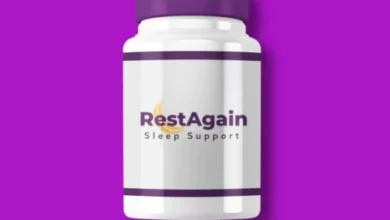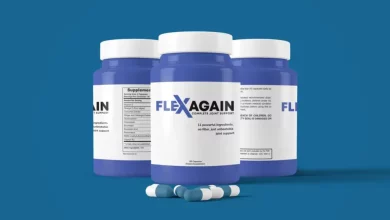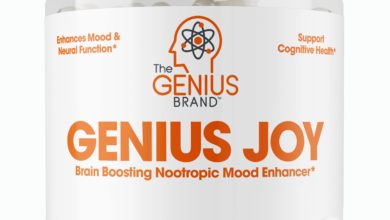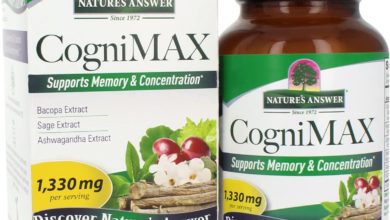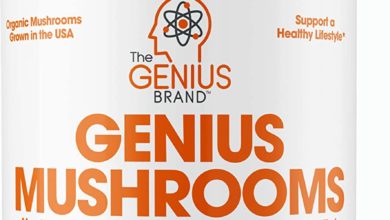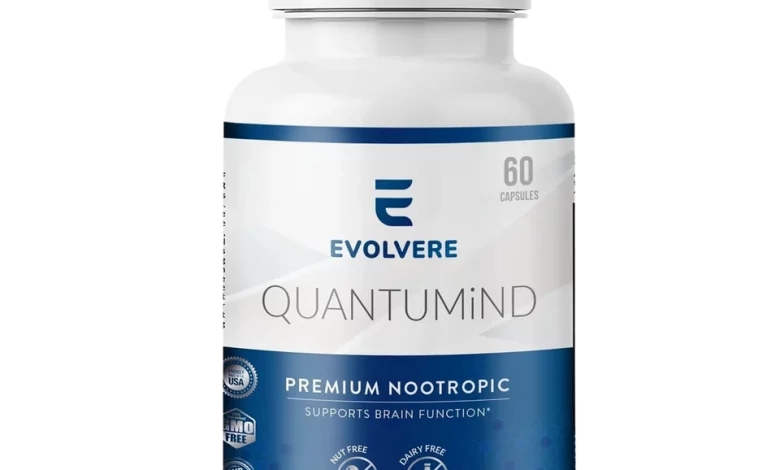
Unveiling QuantuMind: A Comprehensive QuantuMind Review
Let’s dive into the world of nootropics and explore a relatively new product called Quantum Mind in this comprehensive review. We’ll discuss its ingredients, effects, and compare it with other alternatives available in the market. So, buckle up and get ready for an informative and engaging ride!
Quick Verdict: QuantuMind vs. Hunter Focus
Despite some good ingredients we’ve come to the conclusion that there are simply better options out there. In terms of mental energy output Quantumind will give you a temporary boost, as well as overall brain function, but this cognitive enhancement has left many crashing due to its stimulant content. This of course will increase cognitive performance and speed up cognitive processes, but it’s a bit of a cheap and unfulfilling way to do it and overall we think you can do better with your money.
After a deep-dive analysis, we recommend Hunter Focus as a superior alternative to Quantum Mind. While Quantum Mind has some potential benefits, the risks associated with its high stimulant content make it a less appealing option. Hunter Focus, on the other hand, provides a safer, more effective solution for enhancing cognitive function, supporting brain health by protecting brain cells, provides mental clarity to break through the brain fog and enhances cognitive abilities in a much more general and sustainable way.
Brand Overview: QuantuMind
Quantum Mind is a newer addition to the vast nootropic supplement market, which aims to boost cognitive function and athletic performance. and are sometimes called brain supplements. Developed by a lesser-known parent company, it has garnered a loyal fan base and positive reviews. However, its formula raises some concerns and is lacking in some crucial areas, which we will discuss in detail throughout this review.
How Quantum Mind Works
Quantum Mind is primarily a nootropic, which means it’s designed to improve various aspects of cognitive health and well-being. It claims to be an advanced stack that can not only enhance cognitive function but also boosts athletic performance. In theory, it should improve focus, memory recall, mood, and other cognitive processes while providing an energy boost and increased muscular power.
However, the reality may be different. The high stimulant content in Quantum Mind may lead to increased energy levels, faster mental processing but could also result in negative side effects and compromised cognitive benefits.
Ingredients Breakdown
Quantum Mind’s formula contains a mix of ingredients – some with proven benefits, and others that raise concerns. Let’s take a closer look at the key components:
N-Acetyl-L-Carnitine (500 mg)
N-Acetyl-L-Carnitine (NAC or ALCAR) is a compound derived from the amino acid L-carnitine. It plays a vital role in energy metabolism and is involved in various physiological processes in the body. NAC is commonly used as a dietary supplement and has been researched for its potential cognitive-enhancing properties.
NAC has shown promise as a nootropic supplement, with studies suggesting several potential benefits for cognitive function. Here are some key findings:
N-acetyl-L-cysteine (NAC) has been studied for its impact on cognitive function, especially in individuals with age-related cognitive decline or neurodegenerative disorders. It has shown potential in improving memory, attention, and executive functions [1]. Additionally, NAC exhibits neuroprotective properties by acting as an antioxidant and anti-inflammatory agent, which may help safeguard against oxidative stress associated with neurodegenerative diseases [2]. Moreover, NAC has been explored for its potential benefits in mood disorders and mental health conditions [3].
Regarding the dosage required for a positive outcome, the optimal dosage of NAC for cognitive enhancement can vary depending on the specific condition or purpose. Studies have used a wide range of doses, typically ranging from 600 mg to 2400 mg per day, so the 500mg here is unlikely to have any of these positive effects that we brought up, leaving us confused why they didn’t just increase the dosage by 100mg?
Tyrosine (450 mg)
Tyrosine is a non-essential amino acid that serves as a building block for neurotransmitters such as dopamine, norepinephrine, and epinephrine. It plays a crucial role in various physiological processes and has been studied for its potential cognitive-enhancing effects.
Tyrosine is often included in nootropic supplements due to its role in neurotransmitter synthesis and modulation of cognitive function. Here are some key findings regarding the effects of tyrosine supplementation:
Tyrosine has been studied for its ability to enhance cognitive performance under stressful conditions, including physical exertion, sleep deprivation, and exposure to extreme environments [4]. It has also been suggested to improve alertness, focus, and mental function, especially in situations that require cognitive effort or during periods of stress [5].
Regarding the dosage required for a positive outcome, the optimal dosage of tyrosine can vary depending on the specific condition or purpose. Typical doses used in research studies range from 100 mg to 2000 mg per dose, with multiple doses per day if needed.
Phenylethylamine (350 mg)
Phenylethylamine (PEA) is a naturally occurring compound that acts as a neuromodulator and neurotransmitter in the brain. It is involved in regulating mood, cognition, and various physiological processes. PEA has gained interest in the field of nootropics due to its potential cognitive-enhancing effects. However, the evidence regarding its effectiveness as a standalone nootropic is limited.
Phenylethylamine (PEA) functions as a trace amine that enhances the release and activity of neurotransmitters like dopamine and norepinephrine, which are important for mood, motivation, and cognitive function. It has been associated with mood improvement, a sense of well-being, and is sometimes referred to as the “love molecule” due to its alleged role in producing feelings of euphoria and attraction. However, PEA has a short half-life in the body as it is quickly broken down by enzymes, limiting its effectiveness when taken as an oral supplement.
Though a promising concept unfortunately without proper scientific backing we can’t really endorse it’s use as a nootropic supplement. That being said it’s an exciting ingredient so we do understand why they’ve used it, but without any actual evidence its little more than hopeful thinking.
Shilajit (150 mg)
Shilajit is a substance that is commonly used in traditional Ayurvedic medicine and is derived from the Himalayan mountains. It is a blackish-brown resinous material that is rich in minerals, humic acids, fulvic acids, and other bioactive compounds. Shilajit has gained popularity as a dietary supplement and is believed to offer various health benefits, including potential cognitive enhancement.
There is limited evidence advocating for its use here as there are very few clinical trials testing it, though we did find one that seems to suggest there’s a decreased impact of fatigue, meaning that the subjects tested were able to push their strength further when fatigued after supplementation [6]
Though that may sound promising unfortunately we must now turn our attention once again to the dosing, which is sorely lacking. In the trial we’ve discussed the supplementation of shilajit was at 600mg, leaving a lot to be desired from Quantumind’s offering.
Alpha Lipoic Acid (275 mg)
Alpha-lipoic acid (ALA) is a naturally occurring compound that acts as a potent antioxidant in the body. It plays a crucial role in energy metabolism and has been studied for its potential neuroprotective effects.
ALA has been investigated for its impact on cognitive function and brain health. Some studies suggest that ALA supplementation may improve memory and cognitive performance, particularly in individuals with conditions affecting cognitive function, such as Alzheimer’s disease or mild cognitive impairment [7]. ALA’s antioxidant activity helps reduce oxidative stress, which is thought to contribute to cognitive decline and neurodegenerative diseases.
Regarding the dosage required for a positive outcome, the optimal dosage of ALA as a nootropic supplement can vary depending on the specific purpose and formulation. However, typical dosages used in research studies range from 300 to 600 mg per day. We can give 275 a very non-commital “maybe” for whether or not it will work, but this constant under-dosing shows that Quantumind are happy with under delivering with the assumed reasoning that they’re close enough, but our bodies don’t really work like that so we’re struggling to see what the plan was here.
Alpha-GPC (250 mg)
Alpha-GPC (L-alpha glycerylphosphorylcholine) is a compound that is commonly used in nootropic supplements due to its cognitive-enhancing properties. It is a precursor to acetylcholine, a neurotransmitter involved in learning, memory, and other cognitive processes. Alpha-GPC is thought to increase acetylcholine levels in the brain, which may support cognitive function.
Several studies have explored the effects of Alpha-GPC on cognitive performance and brain health. Research suggests that Alpha-GPC supplementation may improve memory, attention, and overall cognitive function [8]. It is believed to enhance cholinergic neurotransmission, which is important for various cognitive processes.
Regarding the dosage required for a positive outcome, the optimal dosage of Alpha-GPC can vary depending on the specific purpose and formulation. Typical dosages used in research studies range from 300 to 1200 mg per day, so once again we’re seeing Quantumind scrape just under what the scientific literature is backing.
Phosphatidylserine (175 mg)
Phosphatidylserine (PS) is a naturally occurring phospholipid found in high concentrations in the brain. It plays a vital role in maintaining the structure and function of brain cells and is involved in various cognitive processes, including memory, attention, and learning [9]. Due to its potential cognitive-enhancing properties, PS is commonly used in nootropic supplements.
It’s worth mentioning that most studies investigating the cognitive effects of PS have focused on older adults with age-related cognitive decline or subjective memory complaints. More research is needed to determine the effects of PS supplementation in healthy individuals and different age groups.
Regarding the dosage required for a positive outcome, optimal dosages of PS may vary depending on the specific purpose and formulation. In clinical trials, dosages ranging from 100 mg to 800 mg per day have been used, so we’re within range. Let’s take the win and quickly move on.
Green Tea Leaf Extract (150 mg)
Green tea extract is derived from the leaves of the Camellia sinensis plant and is known for its rich content of bioactive compounds, including polyphenols and catechins. One of the key components of green tea extract is epigallocatechin gallate (EGCG), which has been studied for its potential cognitive-enhancing effects, especially for memory [10].
Regarding the dosage required for a positive outcome, optimal dosages of green tea extract can vary depending on the specific formulation and concentration of bioactive compounds. In studies examining cognitive effects, dosages ranging from 250 mg to 500 mg of green tea extract standardized to contain a certain percentage of EGCG have been used.
Panax Ginseng (100 mg)
Panax Ginseng, commonly known as Asian Ginseng or Korean Ginseng, is a popular herbal remedy with potential cognitive-enhancing effects. Several studies suggest that Panax Ginseng may improve cognitive performance, including memory, attention, and mental processing speed [11].
The dosage required for a positive outcome can vary depending on the specific extract or formulation used. However, a commonly studied dosage range is 200-400 mg of standardized Panax Ginseng extract per day, so we are once again completely under the threshold. It also tends to work best when combined with bacopa, with the two extracts complimenting each other for a greater overall effect. [12] Something that our number one rated nootropic hunter focus does.
Ashwagandha (200 mg)
Ashwagandha, scientifically known as Withania somnifera, is an adaptogenic herb commonly used in traditional Ayurvedic medicine. It has gained attention for its potential cognitive-enhancing effects and ability to reduce stress and anxiety.
Ashwagandha may work as a nootropic supplement due to its impact on various aspects of brain function. It has been reported to improve cognitive abilities such as memory, attention, and information processing speed [13]. Additionally, Ashwagandha may help reduce stress and promote a calm and focused state of mind, which can indirectly support cognitive performance.
The effective dosage of Ashwagandha for cognitive enhancement can vary depending on the extract used and individual factors. However, studies often utilize doses ranging from 300 mg to 600 mg of standardized Ashwagandha extract per day. [14]
Verdict – Does Quantum Mind Work?
Unfortunately, Quantum Mind’s formula is marred not only by it’s underdosing of ingredients, but also by its high stimulant content, primarily from caffeine (300 mg) and hordenine (75 mg). These stimulants can lead to numerous side effects and undermine the positive effects of other ingredients.
While Quantum Mind may provide an energy boost, it falls short in delivering on its nootropic and athletic enhancement promises due to its high stimulant content. Moreover, it poses potential health risks that make it a less appealing choice.
For those seeking a safer and more effective cognitive enhancer, we recommend Hunter Focus as a better alternative.
In Conclusion
Quantum Mind’s high stimulant content and potential health risks make it a less appealing option for those seeking to improve cognitive function and athletic performance. Instead, we recommend Hunter Focus as a safer and more effective nootropic.
By choosing Hunter Focus, you can enjoy naturally improved energy, reduced stress and anxiety, better brain health, and enhanced neurotransmitter activity – all without the potential dangers associated with Quantum Mind.
Customer Experiences
Some customers have reported positive experiences with Quantum Mind, claiming improvements in energy levels and focus. However, others have reported side effects such as jitters, energy crashes, and anxiety – likely due to the high stimulant content.
Frequently Asked Questions
Q: What are the potential side effects of Quantum Mind?
A: The high caffeine and hordenine content in Quantum Mind may cause side effects such as nausea, stomach cramps, digestive discomfort, headaches, jitters, anxiety, dizziness, hypertension, elevated heart rate, difficulty breathing, and insomnia. Long-term use may also lead to dependency.
Q: Are there better alternatives to Quantum Mind?
A: Yes, we recommend Hunter Focus as a safer and more effective alternative to Quantum Mind. Hunter Focus contains a well-researched and scientifically-backed formula without the high stimulant content, making it a better choice for enhancing cognitive function.
Q: How should I take Quantum Mind?
A: If you decide to use Quantum Mind, consult your doctor first, and make sure to avoid other sources of caffeine or stimulants while using it. However, we strongly recommend considering other, safer alternatives like Hunter Focus.
References
- Montgomery, S. A., Thal, L. J., & Amrein, R. (2003). Meta-analysis of double-blind randomized controlled clinical trials of acetyl-L-carnitine versus placebo in the treatment of mild cognitive impairment and mild Alzheimer’s disease. International clinical psychopharmacology, 18(2), 61-71.
- https://www.ncbi.nlm.nih.gov/pmc/articles/PMC5870019/
- https://www.ncbi.nlm.nih.gov/pmc/articles/PMC6217900/
- Mahoney, C. R., Castellani, J., Kramer, F. M., Young, A., & Lieberman, H. R. (2007). Tyrosine supplementation mitigates working memory decrements during cold exposure. Physiology & Behavior, 92(4), 575-582.
- Thomas, J. R., Lockwood, P. A., Singh, A., & Deuster, P. A. (1999). Tyrosine improves working memory in a multitasking environment. Pharmacology, Biochemistry, and Behavior, 64(3), 495-500.
- https://www.ncbi.nlm.nih.gov/pmc/articles/PMC6364418/
- Hager K., et al. Alpha-lipoic acid as a new treatment option for Alzheimer’s disease—a 48 months follow-up analysis. J Neural Transm Suppl. 2007;(72):189-93.
- De Jesus Moreno Moreno M. Cognitive improvement in mild to moderate Alzheimer’s dementia after treatment with the acetylcholine precursor choline alfoscerate: a multicenter, double-blind, randomized, placebo-controlled trial. Clin Ther. 2003;25(1):178-93.
- Richter Y., et al. The effect of phosphatidylserine-containing omega-3 fatty acids on memory abilities in subjects with subjective memory complaints: a pilot study. Clin Interv Aging. 2010;5:313-6.
- Dietz C., et al. Green tea extract catechin improves cerebral blood flow and working memory performance. Front Nutr. 2014;1:20.
- Reay JL, Kennedy DO, Scholey AB. Effects of Panax ginseng, consumed with and without glucose, on blood glucose levels and cognitive performance during sustained ‘mentally demanding’ tasks. J Psychopharmacol. 2006;20(6):771-81.
- https://centertrt.org/blog/does-ginseng-increase-testosterone-levels.html
- Choudhary D, Bhattacharyya S, Joshi K. Body Weight Management in Adults Under Chronic Stress Through Treatment With Ashwagandha Root Extract: A Double-Blind, Randomized, Placebo-Controlled Trial. J Evid Based Complementary Altern Med. 2017;22(1):96-106.
- https://examine.com/supplements/ashwagandha/
